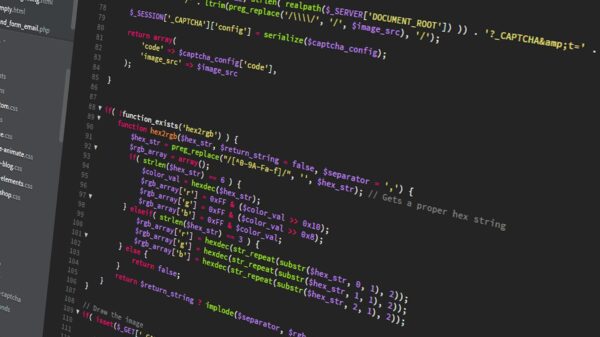
Welcome to the future – where machines are becoming smarter and revolutionizing our society. From self-driving cars to virtual assistants, artificial intelligence (AI) is transforming the way we live and work. And at the heart of this transformation lies machine learning, a subset of AI that enables computers to learn from data without being explicitly programmed. So if you’re curious about how AI is changing our world, buckle up for an exciting ride as we explore The Rise of AI: How Machine Learning is Revolutionizing Society!
What is AI and Machine Learning?
AI and machine learning are revolutionizing society by making machines smarter and more efficient.
In the past, machines were limited by the amount of data they could process and the speed at which they could process it. This meant that many tasks which are now easily completed by computers, such as weather forecasting or stock market analysis, were simply too difficult for them.
However, with the advent of AI and machine learning, this is no longer the case. Machines can now learn from data much more effectively than before, meaning that they are able to carry out complex tasks which would previously have been impossible.
This has had a profound impact on society, with many industries now being transformed by machine learning. For example, in healthcare, machine learning is being used to develop new treatments for diseases, while in finance it is being used to create more accurate financial models.
AI and machine learning are having a hugely positive impact on society by making machines smarter and more efficient. In the future, they will only become more important as we increasingly rely on them to help us solve problems and make decisions.
How AI and Machine Learning is Being Used in the World Today
AI is being used in a number of different ways in the world today. One way is through the use of chatbots. Chatbots are computer programs that can mimic human conversation. They are often used to provide customer service or support. Another way AI is being used is through the development of autonomous vehicles. Autonomous vehicles are able to drive themselves without the need for a human driver. This technology is still in its early stages, but it has the potential to revolutionize transportation.
The Benefits of AI and Machine Learning
There is no doubt that artificial intelligence (AI) is rapidly evolving and growing more sophisticated every day. With the rapid expansion of AI capabilities, businesses and individuals are beginning to reap the benefits of this technology. Here are just a few examples of how AI is revolutionizing society:
1. Increased Efficiency and Productivity: Businesses are using AI to automate tasks which can free up employees to focus on more productive work. For instance, chatbots can handle customer service inquiries, while software can be used to automate repetitive processes like data entry.
2. Smarter Decision Making: AI is being used to help businesses make better decisions by analyzing data faster and more accurately than humans could. For example, banks are using AI to prevent fraud, insurance companies are using it to assess risk, and retail companies are using it to recommend products to customers.
3. Improved Customer Service: Chatbots and other forms of AI are being used to provide 24/7 customer service, which can improve customer satisfaction rates. Additionally, AI can be used to analyze customer behavior patterns to better understand their needs and preferences.
4. New Job Opportunities: The rise of AI is creating new job opportunities in fields such as data science and machine learning. As businesses increasingly adopt AI technologies, there will be a need for employees with the skillset required to develop and maintain these systems.
Potential Risks of AI
The potential risks of artificial intelligence (AI) have been a hot topic of debate in recent years. Some experts believe that AI could lead to the development of “superintelligent” machines that could eventually surpass human intelligence, leading to unforeseen consequences. Other risks associated with AI include the potential for biased algorithms, cyberattacks, and job loss.
With the rapid advancement of AI technology, it is important to consider the potential risks associated with its development and implementation. One of the most controversial topics surrounding AI is the possibility of creating “superintelligent” machines. Some experts believe that it is only a matter of time before machines surpass human intelligence, which could lead to unforeseen and potentially dangerous consequences. Another risk associated with AI is bias. Algorithms are often created by humans, who are susceptible to bias. This can lead to discriminatory outcomes if not properly monitored. Additionally, AI systems are vulnerable to cyberattacks just like any other computer system. As AI increasingly automates tasks that have traditionally been done by humans, there is a risk of mass job loss across a variety of industries.
While the potential risks of AI should not be ignored, it is important to remember that the technology also has the potential to do a lot of good in the world. When used responsibly, AI can help us solve some of the world’s most pressing problems and make our lives easier in a variety of ways.
Ethical Considerations Surrounding AI
AI technology is revolutionizing the way we live and work, but it also raises ethical concerns. For example, as AI gets better at understanding and responding to human emotions, there is a risk that it could be used to manipulate people’s feelings.
There are also concerns about the impact of AI on employment. As machines get better at doing things that have traditionally been done by humans, there is a risk that jobs will be lost. This could lead to increased inequality and social unrest.

Another ethical concern surrounds the use of AI for surveillance. AI-powered cameras and facial recognition technology can be used to track people’s movements and monitor their behavior. This raises privacy concerns and could be used to target Minority groups.
There is a risk that AI could be used to create weapons that are autonomous and capable of making their own decisions about when to use force. This could lead to a future in which wars are fought by machines, with humans playing no role at all.
These are just some of the ethical concerns that need to be considered as AI technology continues to develop. It is important that we find ways to address these concerns so that we can ensure that AI is developed responsibly and used in a way that benefits everyone.
How Will AI Impact Our Daily Lives?
It is estimated that by 2030, AI will be responsible for the creation of 58 million new jobs. The impact of AI on our daily lives is already evident in many ways. For example, predictive analytics is being used by healthcare providers to improve patient outcomes, and retail companies are using AI to personalize shopping experiences. In the future, AI will likely play an even more important role in our lives as it becomes more sophisticated and ubiquitous.
Conclusion
The impact of machine learning and AI on our lives is profound. From the way we interact with technology to how businesses are managed, it is clear that this technology will play a major role in shaping our future. We have only scratched the surface of what AI can do for us, but its potential is enormous. With continued research and development, there’s no telling where this technology will take us next – and that’s an exciting prospect indeed!







